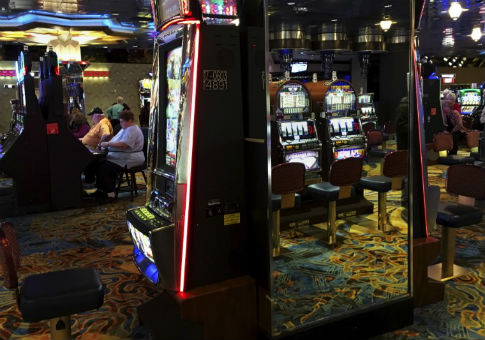By Lawrence Hurley
WASHINGTON (Reuters) - The U.S. Supreme Court on Monday paved the way for states to legalize sports betting in a defeat for the major American sports leagues, endorsing New Jersey's bid to allow such wagering and striking down a 1992 federal law that prohibited it in most places.
The court upheld the legality of a 2014 state law permitting sports betting at New Jersey casinos and horse racetracks and voided the federal Professional and Amateur Sports Protection Act. Some states see sports betting, like lotteries, as a potentially important source of tax revenue.
The ruling takes the United States a step closer to legal sports betting in numerous states, perhaps nationwide, rather than just in select places such as Nevada, home to the gambling capital Las Vegas. The current illegal sports betting market is worth billions of dollars annually.
The justices struck down the entire federal law on a 6-3 vote.
"The legalization of sports gambling requires an important policy choice, but the choice is not ours to make. Congress can regulate sports gambling directly, but if it elects not to do so, each state is free to act on its own," Justice Samuel Alito wrote on behalf of the court.
Industry analysts have said that dozens of states might legalize sports betting if they are not barred from doing so by the federal law.
New Jersey's sports gambling law, championed by Republican former Governor Chris Christie, was challenged in court by the National Football League, Major League Baseball, the National Basketball Association, the National Hockey League, and the National Collegiate Athletic Association, the major governing body for intercollegiate sports.
They called New Jersey's law a threat to the integrity of competition, fearing game-fixing and other types of cheating.
New Jersey argued that the federal law infringed upon state sovereignty as laid out in the U.S. Constitution by compelling states not to license or regulate sports betting.
Christie appealed lower court rulings striking down the state law as a violation of the 1992 federal law that effectively prohibits sports gambling in all states except Nevada and, to a limited extent, Delaware, Montana, and Oregon.
Christie left office in January and was succeeded by Democrat Phil Murphy.
The state law at issue would allow people age 21 and above to bet on sports at New Jersey casinos and racetracks, but would ban wagers on college teams based in or playing in the state.
Professional sports leagues in recent years have begun to shift their views regarding sports betting. Las Vegas now has an NHL team and will soon have an NFL team, and the NBA's commissioner called for legalizing sports betting so it can be properly regulated.
